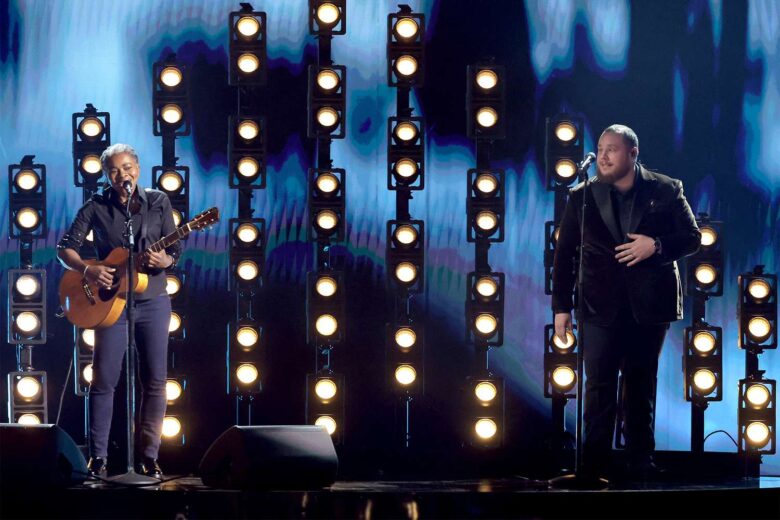Eyes seeking cues from the other’s in a novel duet, they sing of ambitions someday realized – and hopes dashed by the weight of life, and by time. They sing of the humming wheels of an escape vehicle, and what promises may lie over the horizon. A black woman with so much in her rearview mirror, and a white man with the world in his windshield – they sweetly convey, with chorus after rousing chorus, a universal appeal of “Fast Car.”
They’re singing of freedom.
The summer of 1988 was a particularly poppy time in popular music; everything from hard rock to R&B was slickly produced. The Top 40 was dripping with saccharine, so much so that Def Leppard was even singing about sugar. And then, out of nowhere, an unfamiliar face appeared on MTV, quietly imparting gritty truths that stabbed viewers, listeners in their collective guts like hot knives. The truths were signposts in a saga of generational poverty, of opportunities denied, of courage’s summoning. Immediately, it was – and is – a quintessential American folk song. A folk song with accompanying mythos.
Heck, one might even wonder if there ever was a fast car; perhaps it was just a figment of a long-ago fever dream… but no, the song’s power implores, it was real. It is real. It could be real… there’s still time left, isn’t there?
In 1988, Luke Combs’ birth was still two years away. Tracy Chapman’s “Fast Car,” then, had a different meaning to him when he heard it as a child. He heard something about a car and an adventure. He still associates it with his father, talking to a son as he steered the family car towards the grocery store, or to McDonald’s. Combs is far from being alone in his initial interpretation, as the best of songs often have a way of prompting a myriad of personal responses… despite, sometimes, a pretty clear narration. “Fast Car” is one of the greatest of the best, simultaneously prompting joy and telegraphing heartbreak for so long now.
The Grammys traditionally contrive to inject reality into the carefully orchestrated festivities, presenting a few songs that have defied the odds and become popular despite their brilliance. Delivering the honest monologue of “Fast Car” as an earnest duet, then, was manna from corporate heaven… but hardly inspired. Credit Tracy Chapman and Luke Combs for the latter.
The audience knows the song, as most of all stripes and strata know it. They remember it in so many ways; the song evokes nights after long shifts, uniforms reeking of fryer grease, plotting escape over a bravado-bolstering six-pack from a cashier that never checked IDs. The lyrics are also those of desperate lovers; fears and hopes intertwining on a twin bed, excitedly shared in whispers. “Fast Car” is simultaneously a ticket, and a time capsule.
Chapman, with grey the proof of years passed, beaming with her opening notes. Smiling with the first salvo of cheers. We haven’t seen the enigmatic performer in years, but instantly recall that she’s a good person, a sensitive person; those qualities are written all over her face. Qualities shared by a humbled Combs and his boyish countenance. Their voices complement one another, with fiddle and pedal steel signaling that a torch has been passed – if only for a night, or a year. This isn’t an ebony and ivory moment, when cultures and genres meet for the cameras and a buck. This is a human moment, and it is unfolding with only sheet music for a script.
The cool kids in the back are on their feet, singing along; belting out a joyful chorus to the most poignant of songs. A woman in white standing alone amidst the stiffer upper lips towards the front, she does the same. It’s her song, too. It’s everyone’s song; “everyone” limited to those with a heart. And in those fleeting, televised minutes we realize another commonality that the genius of “Fast Car” reveals:
We all had dreams. Some still do.



